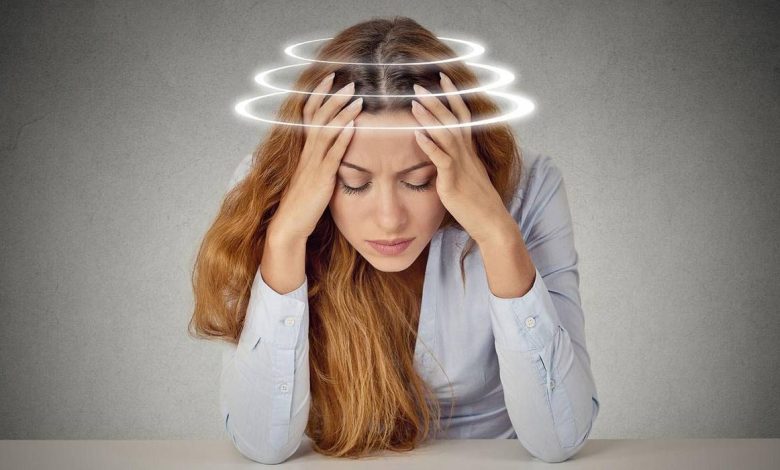Malaise, bad feeling: What's it, causes, symptoms, diagnostics, treatment, prevention

Malaise; General ill feeling
What is malaise?
Illness is feeling unwell, which is often difficult to describe. It may be a lack of energy and enthusiasm, feelings of discomfort and restlessness, or a vague feeling of mental or physical exhaustion. Although malaise is not a disease, it may be associated with a number of underlying diseases, Therefore, if you feel unwell, it is important to seek medical help..
Causes of malaise
The malaise is often associated with a number of diseases.. Although it is not always clear, why is there discomfort, it may be due to a lack of restful sleep, chronic fatigue, stress, depression and anxiety, hormone imbalance, physical or emotional exhaustion, as well as with an underlying infection or disease.
Malaise can also be associated with chronic diseases., such as multiple sclerosis, chronic fatigue syndrome, fibromyalgia or cancer. Besides, certain medications or an allergic reaction may cause you to feel unwell.
The lists below are examples of diseases, conditions and drugs, which may cause discomfort.
SHORT TERM (ACUTE) INFECTION
- Acute bronchitis or pneumonia
- Acute viral syndrome
- Kissing disease
- Flu
- Lyme Disease
LONG-TERM (CHRONIC) INFECTION
- AIDS
- Chronic active hepatitis
- Disease, caused by parasites
- Tuberculosis
HEART AND LUNG DISEASES
- Congestive heart failure
- COPD
ORGAN FAILURE
- Acute or chronic kidney disease
- Acute or chronic liver disease
CONNECTIVE TISSUE DISEASE
- Rheumatoid arthritis
- Sarkoidoz
- Systemic lupus erythematosus
ENDOCRINE or METABOLIC DISEASES
- Adrenal dysfunction
- Diabetes
- Pituitary dysfunction (rarely)
- Thyroid disease
CANCER
- Leukemia
- Lymphoma (cancer, which starts in the lymphatic system )
- Large cancerous tumors, such as colon cancer
BLOOD DISEASES
- Severe anemia
MENTAL DISEASES
- Depression
- Distimija
MEDICINES
- Anticonvulsants
- Antihistamines
- Beta Blockers (medicines, used to treat heart disease or high blood pressure)
- Psihiatricheskie drugs
- Taking multiple medications at the same time
Symptoms of malaise
The main symptom of malaise is general malaise or feeling unwell, which is hard to describe. Other symptoms may include:
- Fatigue
- Lack of energy
- Loss of appetite
- Headache
- Muscle aches
- Dizziness
- Weakness
- Irritability
- Anxiety
- Insomnia
- Nausea
When to see a doctor
If you experience malaise and other symptoms, such as fever, night sweat, weight loss, chest pain, breathlessness, swelling of joints, rash or unusual tiredness, it is important to see a doctor as soon as possible.
Questions, that your doctor may ask
The doctor will ask questions, to determine the cause of your discomfort. These questions may include:
- When did your discomfort begin??
- Do you have other symptoms?
- you feel tired?
- Do you have chronic diseases?
- Have you experienced a lot of stress lately??
- Are you taking any medication?
Your doctor may also ask you to describe your discomfort in detail., therefore it is important, to keep your answers as descriptive as possible.
Diagnosis of malaise
To diagnose illness, your doctor may perform a physical examination and order tests to assess your general health. This may include blood tests, urine tests, chest X-ray, electrocardiograms or other imaging tests. Your doctor may also ask you to keep a record of your symptoms., sleep and activity patterns, to identify possible triggers for malaise.
Treatment for malaise
Illness is not a disease, but rather a symptom of a number of underlying diseases. Therefore, the treatment of the malaise will depend on the underlying cause.. Treatment may include lifestyle changes, drug treatment, therapy or other treatments for the underlying disease, such as cancer or multiple sclerosis.
home treatment for malaise
In addition to any medical procedures, prescribed by your doctor, you can make some lifestyle changes, to relieve discomfort:
- Physical exercise. Regular physical activity can boost energy levels and mood.
- Adequate sleep. Try to get at least 7-8 hours of sleep per night.
- Reduced stress. Practice relaxation techniques, such as yoga or meditation, to reduce stress.
- Nutritious Diet. Eat a balanced diet, containing a lot of fruit, vegetables and whole grains.
- Avoid alcohol. Limit or eliminate alcohol, since alcohol can aggravate the ailment.
Prevention of malaise
Lifestyle changes are the best way to prevent illness. In addition to lifestyle changes, described above, other measures, things you can do to prevent discomfort, include:
- Consider Taking Supplements. Consider taking vitamin and mineral supplements to complement your diet.
- Stress Management. Manage your stress levels, taking regular breaks and avoiding stressful situations whenever possible.
- Follow your treatment plan. Follow your treatment plan, prescribed by a physician for any underlying medical conditions.
- Sufficient hydration. Drink plenty of fluids, to prevent dehydration, especially in hot weather.
- Stay up to date on vaccines. Stay up to date on vaccines, to reduce the risk of infection.
Used sources and literature
Leggett JE. Approach to fever or suspected infection in the normal host. In: Goldman L, Schafer AI, eds. Goldman-Cecil Medicine. 26th ed. Philadelphia, PA: Elsevier; 2020:chap 264.
Nield LS, Kamat D. Fever. In: Kliegman RM, St. Geme JW, Bloom NJ, Shah SS, Tasker RC, Wilson KM, eds. Nelson Textbook of Pediatrics. 21st ed. Philadelphia, PA: Elsevier; 2020:chap 201.
Simel DL. Approach to the patient: history and physical examination. In: Goldman L, Schafer AI, eds. Goldman-Cecil Medicine. 26th ed. Philadelphia, PA: Elsevier; 2020:chap 6.
